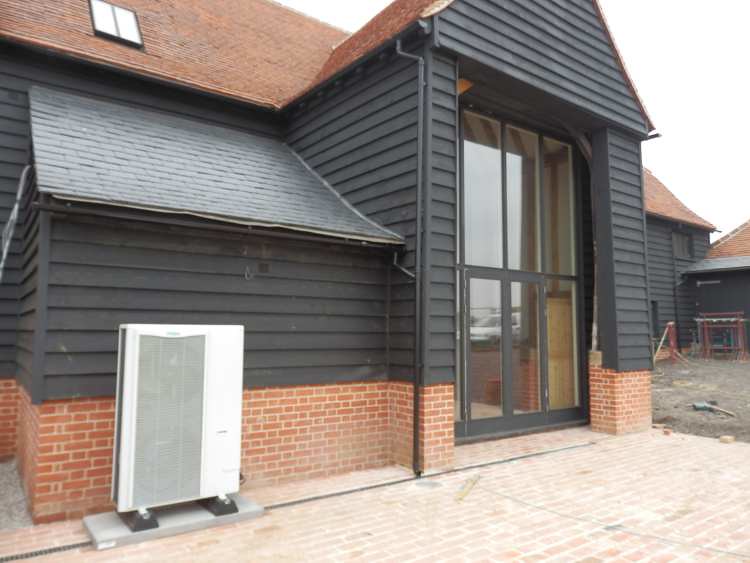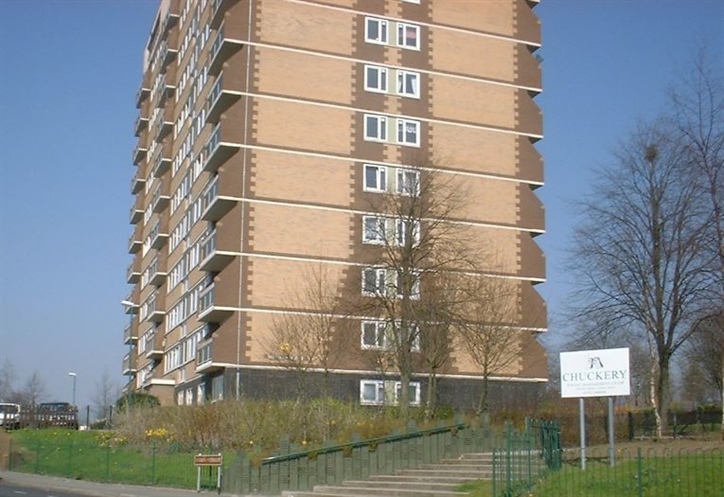Could Electric Heating Systems Play A Crucial Role In Decarbonising Buildings?

Decarbonising heat in buildings is a major challenge facing the UK and is essential for the road to net zero by 2050, Housing Industry Leaders investigates if electric heating systems are key to decarbonising UK buildings.
The UK’s commitment to net zero carbon by 2050 requires a large-scale transformation in the way energy is generated, distributed, and consumed. Heating systems moving to electric could be part of this transformation.
Oliver Baker, Chief Executive Officer at Ambion Heating, which produces the only computer-controlled infrared heating system on the market, stated that he thinks the future of heating is electric.
Electric heating systems will play the key role; I include heat pumps in that will play a key role in the decarbonisation of UK homes.
Hydrogen is not the only solution for decarbonising heat in buildings
One potential option for decarbonising heat in buildings is by replacing natural gas with low carbon hydrogen in all or in parts of the gas grid. A gas grid built or repurposed to supply hydrogen has many advantages over electricity as an energy vector.
Large energy volumes can be stored using proven methods at a relatively low cost, and hydrogen transport via pipelines is low cost compared to electricity and the volume of a large-scale hydrogen transport system provides inherent storage.
Much of the existing gas distribution infrastructure can be repurposed for hydrogen or to support the distribution of hydrogen which includes over 230,000 km of low-pressure local distribution networks.
Oliver revealed that in his opinion hydrogen is not possible as further work is being required to fully access the costs and feasibility: “We are very skeptical about hydrogen being a major solution in domestic heating, not necessarily in powering factories and commercial and things like that.
Repurposing of the gas grid into hydrogen I think is not going to happen.
Hydrogen UK has said that a balance between electrification and hydrogen will most likely be needed with hydrogen boilers, heat pumps, and district heating. Further evidence is needed, with the government supporting the industry to conduct first-of-a-kind hydrogen heating trials.
Trials such as a neighbourhood trail by 2023 and a village-scale trial by 2025 will be seen. Results of a research and development and testing programme, together with the local trials and planning work, will enable the government by 2026 to make decisions on the role of hydrogen for heat.
The biggest challenge is the unit cost of electricity
Compared to electricity, gas can be readily stored and transported, it is also cheaper and easier to transport and store. However, natural gas is a fossil fuel, in the long term, its use will need to be managed.
Oliver told Housing Industry Leaders that he thinks the biggest challenge for electric heating systems playing a crucial role in the decarbonisation of buildings, is the unit cost of electricity: “Not because the electric technology is less efficient, it is just that the unit costs of electricity are much higher.
That is a blocker to simply seeing the whole country switching from gas to electricity. There is a conflict between fuel poverty in doing that.”
Heat pumps aren’t suitable for many properties
Another challenge is that heat pumps are not realistic for around 40% of properties, which represents eight to 12 million homes. Oliver explained how UK homes including older properties, smaller Terrance houses, accommodation, and tower blocks aren’t suitable for heat pumps.
Heat pumps are not a silver bullet because they cannot address various house types which are very common in the UK.
Lack of outside space and thermal properties of the building means that a heat pump cannot meet the space requirement of the property. However, up to four million homes could be made suitable for heat pump retrofit through energy efficiency, such as wall insulation.
To cope with large numbers of heat pumps operating at peak time, the cost of significantly upgrading the electricity distribution network is high. Properties may be better through gas-based technology and a decarbonised gas network.
Technologies having a performance level of heat pumps but can address these properties, such as being more cost-effective, in order for electric heat pumps to play a crucial role in decarbonising buildings is essential.

